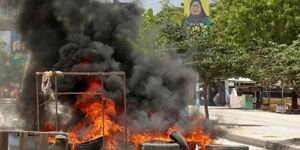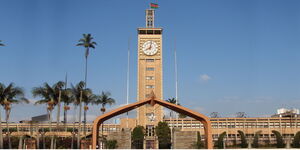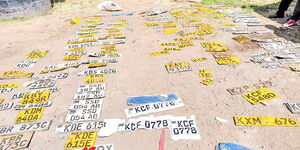Just days after the U.S. began accepting hundreds of migrants from South Africa, refugees in Kenya have appealed to President Donald Trump to lift the suspension of the country’s refugee resettlement program, which has remained frozen since January.
The previous U.S. administration had assured many that they would be among the 120,000 refugees granted entry into the country. One refugee, who fled conflict in the Democratic Republic of Congo (DRC), said he sold all his belongings just two days before the suspension was announced, leaving his family stranded and in uncertainty.
Speaking to the BBC, the man, who asked to be identified only as Pacito, recounted how he was forced to spend the night sleeping in a car park in Kenya with his wife and infant son, overwhelmed by confusion and disbelief. The family had been scheduled to board a resettlement flight to the U.S. just hours before the suspension took effect.
''The flight was cancelled less than 24 hours before take-off,'' he said. ''I did not have anywhere else to go.''
Having already vacated their home and sold their furniture and most of their possessions, the family remains stuck in Kenya—a safer refuge than returning to conflict-ridden DRC, but far from the life they had hoped to start in America.
The family represents the roughly 120,000 refugees who had been conditionally approved to enter the U.S. but who now wait in limbo due to the refugee pause.
This comes at a time when the refugee crisis in Kenya continues to worsen following the aid cuts to various United Nations agencies that support the two refugee camps in Kenya, Kakuma and Dadaab.
Last week, the UN-backed World Food Programme (WFP) revealed that 720,000 refugees at Dadaab and Kakuma face reduced food rations due to critical funding shortages.
Noting that the refugees may be affected starting in June, the UN agency said that while they have continued to receive support from different donors, they are finding it increasingly difficult to cope with the ever-increasing number of asylum seekers.
According to the WFP, Kenya has witnessed an overwhelming increase in refugees over the past five years, with the numbers increasing by over 70 per cent, from around 500,000 to 843,000, as people flee conflict and drought in neighbouring countries such as Somalia and South Sudan.
Meanwhile, Trump’s move marked a sharp departure from the policies of his predecessors. Under former President Joe Biden, the U.S. admitted over 100,000 refugees in 2024—the highest annual figure in nearly 30 years.
Since taking office in January, Trump has swiftly acted on his “America First” campaign pledge, implementing sweeping restrictions on legal migration pathways to the U.S.












